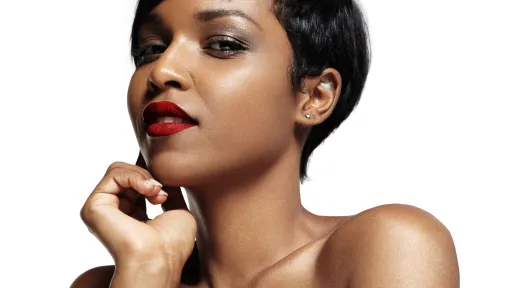
A decade ago, a trip to a Rwandan beauty shop might have meant imported creams of uncertain origin and a limited palette of options. But stepping into Kigali today reveals a radically changed landscape. Shelves gleam with serums infused with aloe and shea butter, local beauty brands beam with pride, and beauty lounges hum with clients scrolling through TikTok tutorials while waiting for a facial or twist-out.
Rwanda’s beauty industry is no longer just catching up; it’s taking the lead. What was once a modest corner of the economy has blossomed into a billion-franc powerhouse, driven by a young, digitally savvy population, a growing middle class, and a renewed appreciation for local identity and self-expression.
In 2024 alone, Rwanda’s personal care market is estimated to have generated nearly $300 million, and this growth is expected to continue. With expected earnings of over $185 million, a figure that was unthinkable just a few years ago. These are from purchases of face masks and moisturisers tailored for melanin-rich skin, a clear message that Rwandans are becoming connoisseurs.
In Rwanda, natural cosmetics are making a bold entrance, not as a trend but as a movement. Products made with ingredients like hibiscus, neem oil, and coconut are gaining favour with eco-conscious buyers who seek clean beauty solutions. This segment alone is expected to reach $10.3 million by year’s end, according to sources.
The beauty shelves reflect more than vanity. They reveal values, aspirations, and the changing face of Rwandan identity. Today’s shoppers want products that speak their language, literally and figuratively.
They seek skin care that nourishes and protects, hair products designed explicitly for coils, curls, and natural hair, cosmetics that cater to the full spectrum of Rwandan skin tones, and fragrances and hygiene items that blend African botanicals with global quality standards. The rise in demand isn't just about appearance; it's about agency. Increasingly, that agency is being shaped online.
Scroll through Instagram or TikTok, and you’ll find Rwandan beauty influencers doing more than posing: they’re educating, reviewing, and building a community. These digital tastemakers are at the heart of Rwanda’s e-commerce boom. With online sales of personal care products expected to hit $3.4 million by 2025, brands are waking up to the power of the influencer economy.
Whether it’s a beauty tip from Kigali or a skincare routine going viral in the diaspora, social media is transforming local routines into global conversations. “We are no longer waiting to be told what beauty looks like. We are defining it ourselves,” says Sandrine Umutoniwase, a digital creator and natural hair advocate.
Kigali has emerged as a glowing epicentre of beauty and wellness. Salons and spas are not just pampering spaces; they are sanctuaries of innovation and empowerment. At Bliss Wellness Spa, healing meets luxury. Nicky Spa Therapy fuses tradition with technology, and Marina Bella Natural Hair Salon leads a movement that champions Afro-textured hair in all its forms.
These spaces reflect more than aesthetic appeal and embody the pride of a culture that’s embracing its beauty on its terms.
Miss Rwanda was once more than a crown and sash. It has inspired many into modelling careers. Others has built beauty related as business ventures and social initiatives, rewriting the narrative on what it means to be beautiful.
Meanwhile, Rwandan media is embracing this shift. Television, fashion magazines, and blogs now regularly cover beauty launches, new trends, and local heroes, giving visibility to the faces, voices, and stories behind the transformation.
While Rwanda still imported nearly $14 million in beauty products in 2022, the tide is turning. Local manufacturers, such as Uburanga Products, are proving that Rwandan-made doesn’t mean second-best; it means tailor-made. With thousands of distributors and a sharp focus on homegrown ingredients, the company is at the forefront of a new era in the beauty industry.
By producing locally, Rwanda is reducing import bills. It is also building an industry that understands and celebrates its people. This is a renaissance, a cultural and economic awakening where beauty becomes business, and self-care becomes self-definition.